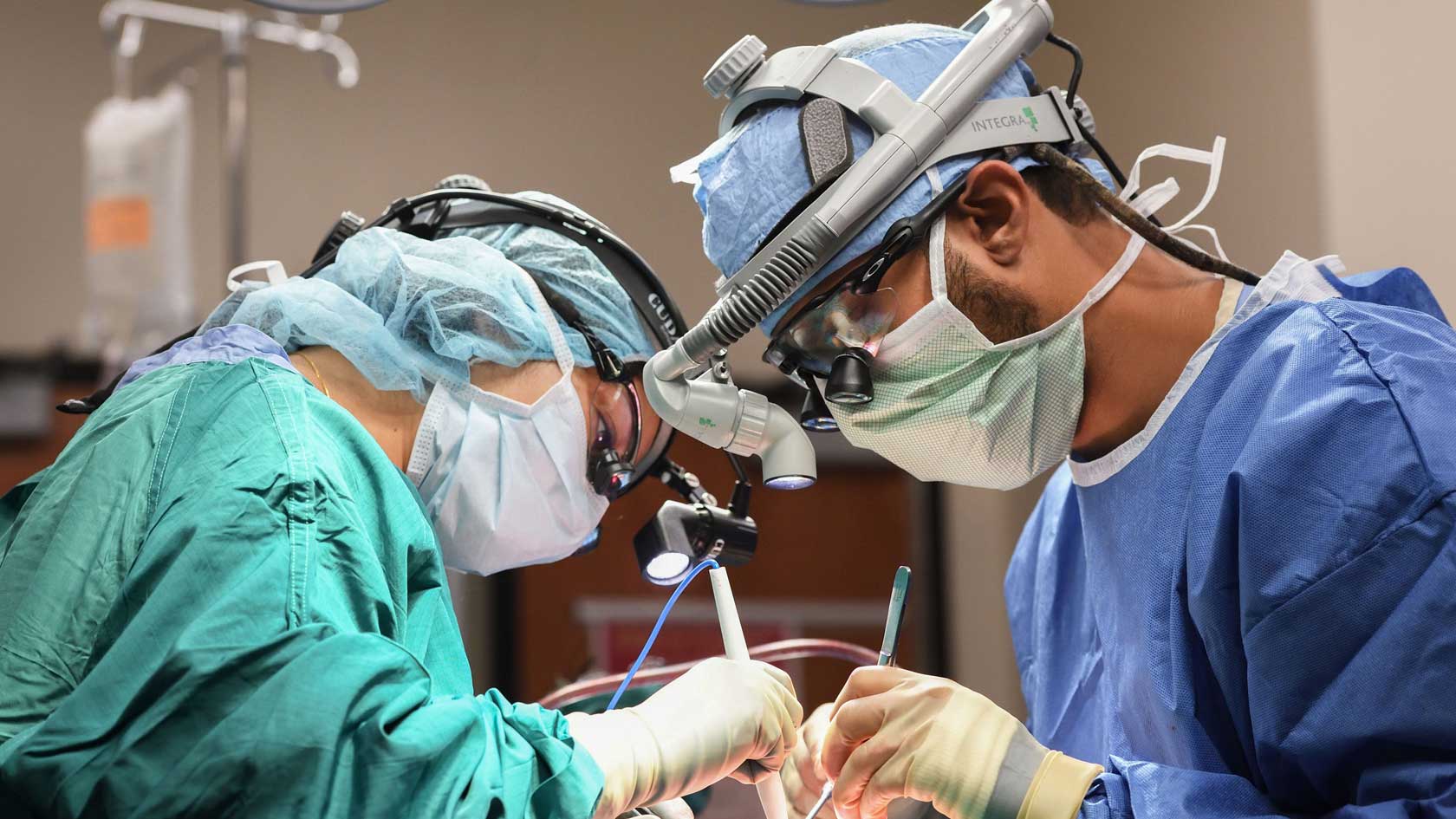Top 10 Conditions Treated at an ENT Doctor Visit
Top 10 Conditions Treated at an ENT Doctor Visit
Blog Article
Exploring the Area of Otolaryngology: What to Expect When You Speak With an ENT
Otolaryngology, typically referred to as ENT, encompasses the medical diagnosis and treatment of ear, nose, and throat conditions. For those experiencing associated problems, seeking advice from an ENT specialist can provide quality and relief. Understanding what to expect throughout such examinations is important for reliable interaction and care. This review will outline vital facets of the ENT experience, consisting of typical factors for visits and the processes associated with diagnosis and therapy.

Recognizing Otolaryngology: A Summary
Otolaryngology, frequently referred to as ENT (Nose, throat, and ear) medicine, is a specific branch of medication that concentrates on the diagnosis and treatment of problems influencing these essential locations of the body. This field encompasses a large array of disorders, consisting of those associated to hearing, balance, respiratory function, and speech. Otolaryngologists are educated to manage both clinical and medical treatments, making use of innovative methods and technologies. Their competence prolongs beyond traditional ailments, attending to concerns such as allergic reactions, sinus infections, and hearing loss. In addition, they play a critical duty in the monitoring of head and neck cancers, offering extensive care customized to individual client demands. In general, otolaryngology stays necessary for keeping wellness and top quality of life in afflicted individuals.
Typical Reasons to See an ENT Professional
Numerous people seek the expertise of an ENT expert for a selection of factors, mirroring the varied nature of problems that affect the nose, ear, and throat. Common issues consist of chronic sinus problems, which frequently leads to consistent nasal blockage and face pain. Allergic reactions and their associated signs, such as itching and sneezing, also trigger brows through to these professionals (ENT surgery). Hearing loss, whether steady or unexpected, is one more significant reason for consultation. On top of that, people might seek examination for throat disorders, consisting of consistent hoarseness or ingesting troubles. Rest apnea, characterized by disturbed breathing throughout sleep, is frequently attended to by ENT experts as well. Each of these conditions highlights the importance of specialized care in handling complex ENT-related health problems
Planning for Your ENT Visit
When preparing for an ENT visit, it is necessary to collect relevant details and think about any certain problems. Individuals ought to compile an in-depth case history, including previous ear, nose, or throat problems, surgical treatments, and present medications. Documenting signs-- such as severity, frequency, and duration-- can provide useful insights for the ENT professional. Additionally, individuals should prepare a listing of concerns they wish to ask, making sure that all problems are addressed during the see. Bringing along any type of appropriate medical documents or examination results can additionally assist the ENT in recognizing the person's condition. Lastly, patients need to validate their appointment information, consisting of day, area, and time, to decrease any type of last-minute complication. Proper preparation can improve the performance of the assessment and result in better end results.
What to Anticipate Throughout the Appointment
As the consultation starts, the individual can anticipate to take part in a complete conversation with the ENT expert concerning their signs and symptoms and case history. The specialist will make inquiries about the duration, regularity, and seriousness of signs such as hearing loss, nasal blockage, or sore throat. Additionally, the individual's previous clinical conditions, medicines, and any kind of relevant family members background will be assessed, assisting the specialist in creating a complete understanding of the client's health. The ENT might also ask about way of life variables, such as direct exposure to irritants or irritants. This open discussion establishes a structure for the appointment, making certain that the individual's worries are addressed and establishing the stage for any needed evaluations or suggestions for therapy.
Diagnostic Tests and Procedures in Otolaryngology
A variety of diagnostic tests and procedures are essential in otolaryngology to precisely review and detect problems impacting the ear, nose, and throat. Typical examinations include audiometry, which gauges hearing function, and tympanometry, analyzing center ear pressure. Nasal endoscopy allows visualization of the nasal passages and sinuses, while laryngoscopy examines the throat and vocal cables. Imaging techniques, such as CT scans and MRIs, supply thorough sights of head and neck frameworks. Allergy testing might additionally be performed to identify triggers for sinus or respiratory system problems. These diagnostic tools make it possible for ENT professionals to establish a detailed understanding of people' conditions, guaranteeing tailored and effective administration plans. Proper medical diagnosis is important for effective therapy end results in otolaryngology.
Therapy Options Used by ENT Specialists
ENT professionals provide a range of therapy options customized to attend to certain conditions impacting the ear, throat, and nose. These therapies vary from conventional strategies, such as medication and way of life modifications, to more invasive procedures. As an example, allergies may be managed with antihistamines or immunotherapy, while persistent sinus problems might call for nasal corticosteroids or sinus surgical procedure. For hearing loss, ENT experts frequently suggest listening device or surgical interventions like cochlear implants. In cases of throat disorders, alternatives can include speech treatment or surgical treatments to remove obstructions. In addition, they might provide support for managing rest apnea, consisting of using CPAP devices or surgical interventions. Overall, the goal is to improve people' high quality of life with individualized treatment and reliable treatment techniques.
When to Look For Follow-Up Treatment With an ENT
When to look for follow-up care with an ENT specialist is essential for managing continuous symptoms or complications related to ear, nose, and throat problems, recognizing. Individuals should take into consideration arranging a follow-up appointment if signs and symptoms linger in spite of first treatment, such as chronic ear discomfort, nasal blockage, or throat pain. Changes in hearing, equilibrium issues, or unusual nasal discharge may additionally warrant additional assessment. Additionally, if a client experiences negative effects from recommended drugs or has actually undergone a surgery, follow-up treatment is very important to keep track of healing and attend to any problems. Timely consultations can ensure reliable management of conditions, avoid potential problems, and give satisfaction regarding one's wellness. Seeking follow-up treatment advertises aggressive health management in otolaryngology.
Often Asked Concerns

What Credentials Should I Seek in an ENT Expert?
When looking for an ENT expert, one need to try to find board accreditation, click here pertinent experience, and strong individual testimonials. In addition, reliable communication skills and a compassionate technique can significantly enhance the overall treatment experience.
Exactly how Do I Select the Right ENT for My Needs?
Selecting the ideal ENT specialist involves examining their qualifications, experience, and client evaluations (Voice). It is essential to ponder their interaction style and method to therapy, ensuring they line up with the person's certain health requirements and choices
Are There Any Kind Of Risks Associated With ENT Procedures?
The risks related to ENT procedures might consist of infection, bleeding, anesthetic problems, and potential damages to surrounding structures. Patients must discuss these risks with their physician to comprehend specific issues and guarantee educated choices.
Exactly How Can I Manage Anxiousness Before My ENT Visit?
To manage anxiousness before a consultation, individuals can exercise deep breathing workouts, envision favorable results, prepare concerns ahead of time, and look for support from pals or family members, cultivating a sense of confidence and peace.
What Should I Do if I Experience Negative Effects From Therapy?
The person must without delay report them to their healthcare provider if side results from treatment happen. Adjustments to therapy or additional interventions may be required to ensure security and effectiveness in handling their condition - ENT Clinic. As the consultation starts, the patient can anticipate to engage in a comprehensive discussion with the ENT professional regarding their signs and clinical background. These analysis tools make it possible for ENT experts to establish a comprehensive understanding of people' conditions, ensuring tailored and efficient administration strategies. ENT professionals use a selection of treatment alternatives tailored to address particular conditions affecting the ear, nose, and throat. When looking for an ENT specialist, one should look for board certification, pertinent experience, and strong client reviews. Selecting the right ENT specialist entails assessing their certifications, experience, and patient evaluations
Report this page